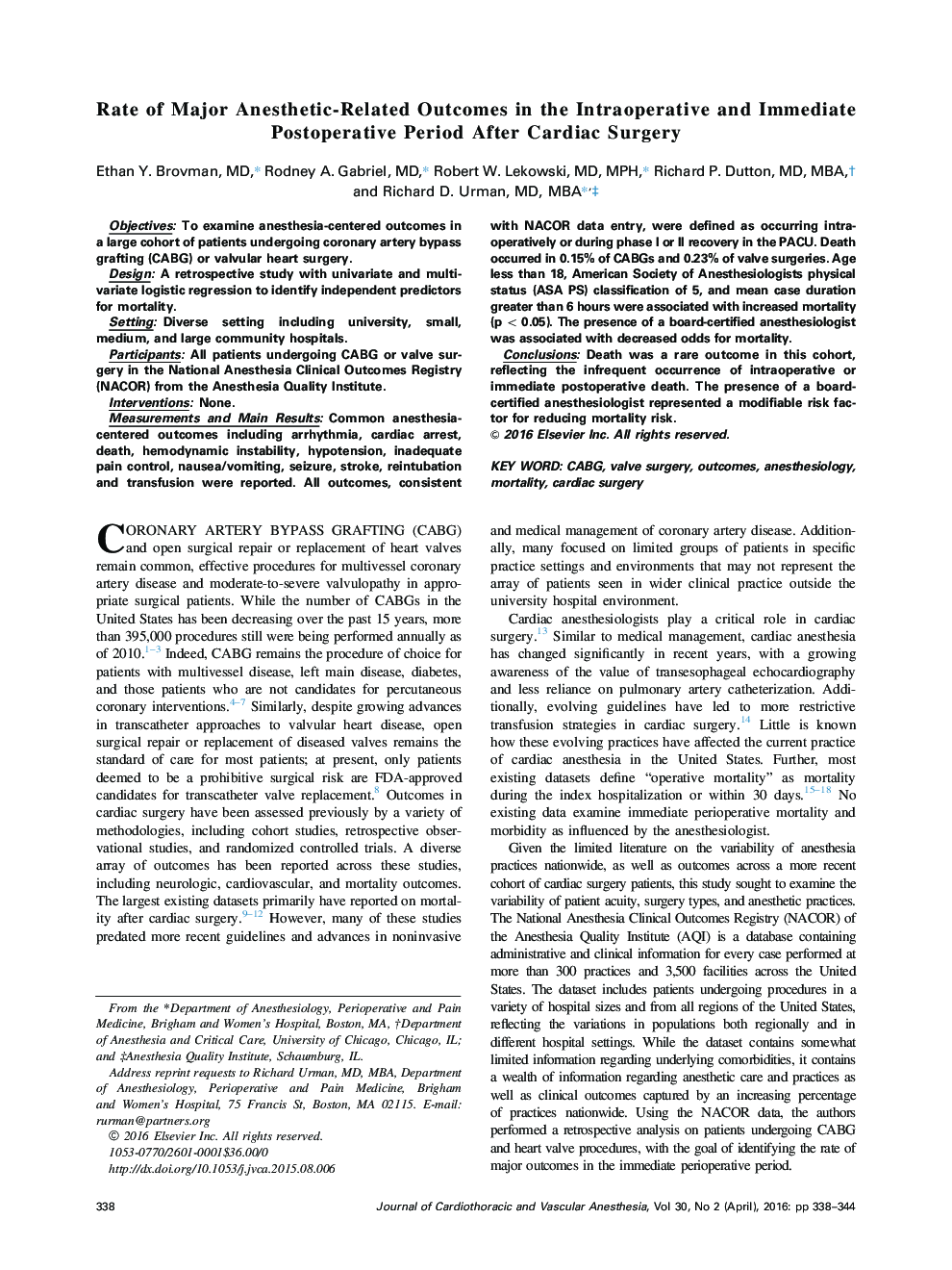| Article ID | Journal | Published Year | Pages | File Type |
|---|---|---|---|---|
| 2758869 | Journal of Cardiothoracic and Vascular Anesthesia | 2016 | 7 Pages |
ObjectivesTo examine anesthesia-centered outcomes in a large cohort of patients undergoing coronary artery bypass grafting (CABG) or valvular heart surgery.DesignA retrospective study with univariate and multivariate logistic regression to identify independent predictors for mortality.SettingDiverse setting including university, small, medium, and large community hospitals.ParticipantsAll patients undergoing CABG or valve surgery in the National Anesthesia Clinical Outcomes Registry (NACOR) from the Anesthesia Quality Institute.InterventionsNone.Measurements and Main ResultsCommon anesthesia-centered outcomes including arrhythmia, cardiac arrest, death, hemodynamic instability, hypotension, inadequate pain control, nausea/vomiting, seizure, stroke, reintubation and transfusion were reported. All outcomes, consistent with NACOR data entry, were defined as occurring intraoperatively or during phase I or II recovery in the PACU. Death occurred in 0.15% of CABGs and 0.23% of valve surgeries. Age less than 18, American Society of Anesthesiologists physical status (ASA PS) classification of 5, and mean case duration greater than 6 hours were associated with increased mortality (p<0.05). The presence of a board-certified anesthesiologist was associated with decreased odds for mortality.ConclusionsDeath was a rare outcome in this cohort, reflecting the infrequent occurrence of intraoperative or immediate postoperative death. The presence of a board-certified anesthesiologist represented a modifiable risk factor for reducing mortality risk.
